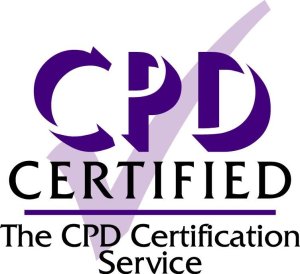
Continuing Professional Development (CPD) for Advisory Professionals
Fundamentals
Published 29 July 2024
Understanding Continuing Professional Development (CPD) for Advisory Professionals
Continuing Professional Development (CPD) is a vital practice that ensures professionals remain competent, effective, and innovative in their respective fields. Continuing Professional Development is not just a professional obligation; it’s a career-enhancing strategy. But what exactly is CPD, and why is it so important?
What is Continuing Professional Development (CPD)?
Continuing Professional Development refers to the process of tracking and documenting the skills, knowledge, and experience that professionals gain both formally and informally beyond any initial training. It’s a holistic approach that encompasses everything from attending workshops and seminars to engaging in self-directed learning and on-the-job experiences. CPD is about maintaining, improving, and broadening your knowledge and skills and developing the personal qualities required in your professional life.
The Importance of CPD
- Staying Current with Industry Changes
- Industries and professions are continually evolving. New technologies, regulations, and methodologies emerge regularly. CPD helps professionals stay updated with these changes, ensuring they remain competent and relevant.
- Enhancing Skills and Knowledge
- Engaging in CPD activities allows professionals to expand their expertise. This continuous learning process can lead to the acquisition of new skills and a deeper understanding of their field, enhancing overall job performance.
- Career Advancement
- For many professionals, CPD is a pathway to career progression. By continuously developing their skills and knowledge, they position themselves as valuable assets to their employers, often leading to promotions and new opportunities.
- Meeting Professional Standards
- Many industries have regulatory bodies that set standards for practice. CPD is often a requirement to maintain professional licenses or certifications, ensuring that practitioners meet these established standards.
- Boosting Confidence and Credibility
- Engaging in CPD helps build confidence in one’s abilities. It also enhances credibility with clients, employers, and peers, as it demonstrates a commitment to maintaining high standards of professionalism.
- Networking Opportunities
- CPD activities often provide opportunities to network with other professionals in the field. This networking can lead to collaborations, mentorship opportunities, and the sharing of best practices.
- Personal Development
- Beyond professional growth, CPD contributes to personal development. It encourages critical thinking, problem-solving, and adaptability, which are valuable life skills.
ARE the advisory board centre programs eligible for cpd?
Each professional organisation can vary in their CPD requirements and how they assess eligibility of CPD activities. In recognition of the important role the CPD plays in maintaining professional currency and impact, the Advisory Board Centre has undertaken an external accreditation process for the Certified Chair™ Executive Program.
Accredited CPD training means the learning activity has reached the required Continuing Professional Development standards and benchmarks. The learning value has been scrutinised to ensure integrity and quality. The CPD Certification Service provides recognised independent CPD accreditation compatible with global CPD requirements.
Participants that successfully completed the Certified Chair™ Executive Program will not only gain the Certified Chair™ credential, but will have the option to apply to their professional bodies or employers for CPD recognition for the program.
The Advisory Board Centre is a member of the CPD Certification Service, which provides recognised independent CPD accreditation compatible with global CPD principles.
The Certified Chair™ Executive Program has been formally accredited as a CPD learning activity.

HOW DO I APPLY for cpd?
The majority of institutions and professional bodies provide Continuing Professional Development targets generally set on an annual basis. Most professional bodies use CPD hours as their measure, and where CPD points or credits are used, these are typically a 1:1 ratio with CPD hours. By this, 1 CPD point would be equal to 1 CPD hour.
CPD is something that most people will do on an ongoing basis as part of their career. To reflect and keep track of learning, it is important to maintain a regular and up to date record of any completed learning and development activities, as well as future goals or professional achievements in the work environment.
Participants in the Certified Chair™ Executive Program will receive a digital credential, securely issued via our verifiable platform using the secure power of blockchain credentials to provide enhanced levels of security. This level of professional security helps to prevent credential fraud and are effectively impossible to forge, alter, or remove. Participants, and the wider market, have the peace of mind to know that only professionals that have completed the Certified Chair™ Executive Program are able to receive the credential.
To apply for CPD, check the CPD submission requirements with your relevant professional body or institution. You can submit the certificate or unique digital credential link to verify your participation in the Advisory Board Centre Certified Chair™ Executive Program.





